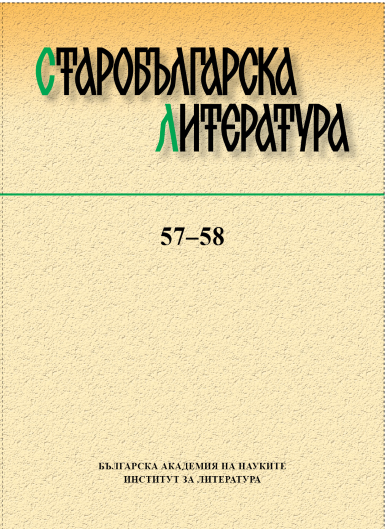Папският благослов на славянските книги като полемичен аргумент
The Papal Blessing of the Slavonic Books as a Polemical Argument
Author(s): Aleksander NaumowSubject(s): Language and Literature Studies, Literary Texts, Cultural history, Studies of Literature, Middle Ages, Theology and Religion
Published by: Институт за литература - БАН
Keywords: Constantine-Cyril the Philosopher; creating of the Slavonic alphabet; Papal blessing of the Slavonic books; Glagolitic; Orthodox-Catholic polemic; Cyrillo-Methodian question
Summary/Abstract: Based on extant texts, this article analyzes the attitudes of the pontiffs of Rome toward the introduction of the Slavonic language into Christian worship, beginning with the blessing of the liturgical books that SS Cyril and Methodius brought to Rome. The decision of Adrian II and John VIII to allow the use of the new barbarian language was gradually cancelled out or reduced to a marginal phenomenon (Dalmacia, Prague, Olesnitsa, Cracow). After the Union of Brest (1596), however, it became a tool of Catholic proselytism with respect to the Orthodox Slavs. According to the ideology of Paposlavism, this blessing sanctified Slavonic writing and culture and introduced Bulgaria and Kievan Rus’ into the sphere of Western Christianity, a gesture not unlike the anointing of the newly baptized in the Eastern rite. Significantly, in this view, submission to the Pope was the only criterion for belonging to the Church and the right faith. In the East, by contrast, the Slavonic alphabet and writing were considered a gift from God that, by the will of the Emperor and the Synod, found its application in missionary work. The Papal blessing did not concern the essence of the gift of the Word, but was only an administrative decision of the ruling hierarch, which affected only local practice. The discussion about the place and role of SS Cyril and Methodius in the history of cultural, ecclesiastic and political relations between Slavs and Greeks, Slavs and “Romans,” as well as among the different Slavic peoples, has not lost its relevance today, as it provides scholars with a wide range of more or less familiar arguments and facts.
Journal: Старобългарска литература
- Issue Year: 2018
- Issue No: 57-58
- Page Range: 40-60
- Page Count: 21
- Language: Bulgarian
- Content File-PDF

